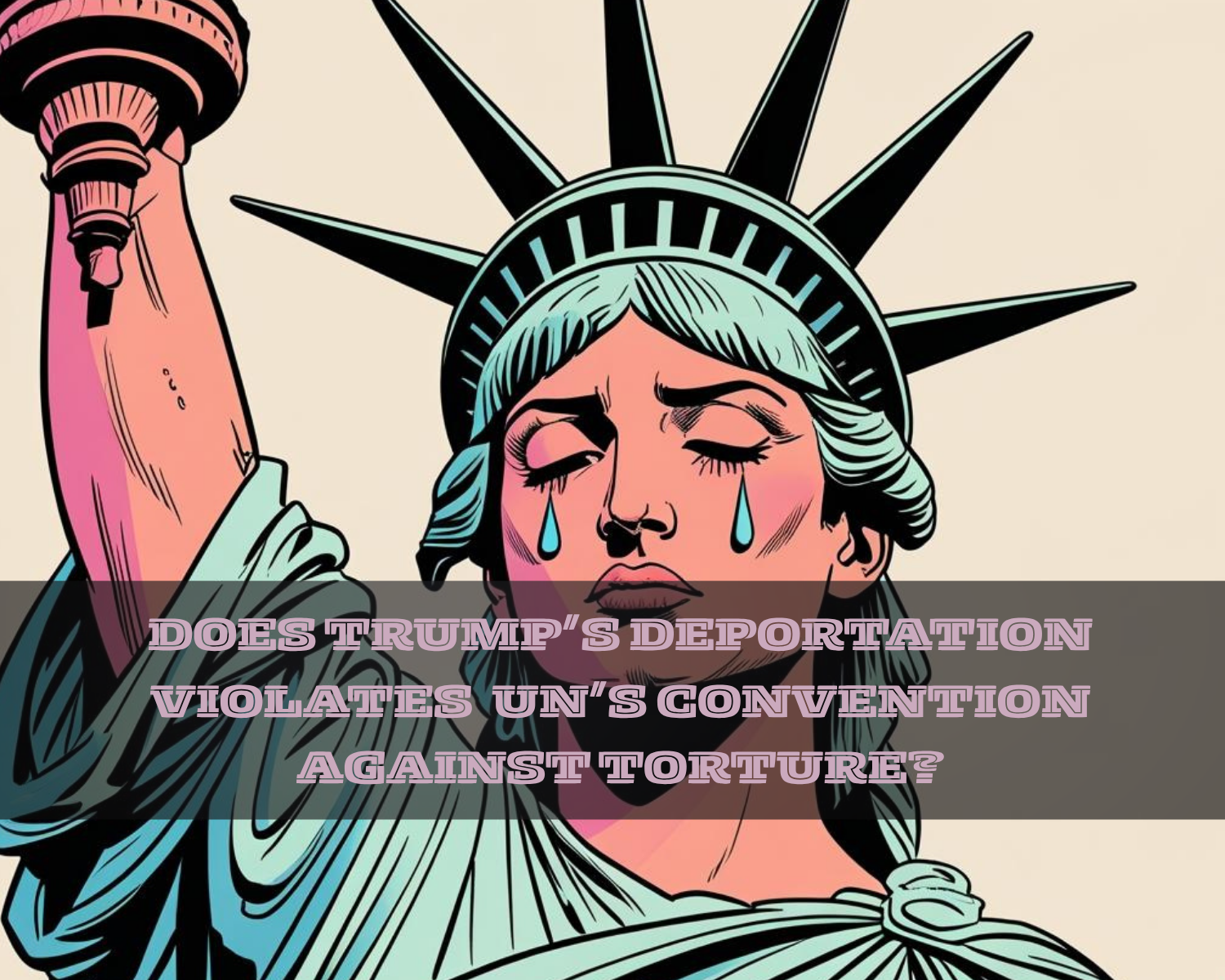On Deportations
It’s a fair question to ask whether President Trump’s deportation policies directly violate the United Nations Convention Against Torture (UNCAT). Human rights organizations and political critics have pointed to Article 3 of the Convention, which clearly outlines what constitutes a violation:
Article 3(1): “No State Party shall expel, return (‘refouler’) or extradite a person to another State where there are substantial grounds for believing that he would be in danger of being subjected to torture.”
Article 3(2): “For the purpose of determining whether there are such grounds, the competent authorities shall take into account all relevant considerations including, where applicable, the existence in the State concerned of a consistent pattern of gross, flagrant or mass violations of human rights.”
A new ICE memo issued in July allows expedited deportations to third countries—such as South Sudan, which has a well-documented history of human rights abuses—with as little as six hours’ notice. This policy arguably violates Article 3. Even if the Trump administration claims to have received diplomatic assurances that migrants will be protected from torture upon arrival, Article 3(2) makes it clear that the general conditions in the receiving country must be taken into account, not just the individual circumstances of the deportee.
Further complicating matters, in March 2025, Federal Judge Brian Murphy issued a nationwide restraining order requiring that migrants receive meaningful Convention Against Torture (CAT) notice and at least ten days to assess their fear of torture before removal to a third country. However, in May 2025, the administration proceeded with deportations to South Sudan and Libya, often without due process or proper CAT screening. Judge Murphy ruled that this action violated his court order. That same month, Human Rights Watch documented the transfer of migrants to El Salvador’s CECOT prison—an institution notorious for human rights abuses.
On June 23, the U.S. Supreme Court intervened and suspended Judge Murphy’s ruling, effectively allowing deportations to third countries to resume. This suspension also undercuts CAT protections. Justices Sotomayor, Kagan, and Jackson dissented, warning that deporting migrants to countries with documented human rights violations could expose them to torture and grave danger.
As it stands, there is compelling evidence that the Trump administration’s actions violate Article 3 of the UN Convention Against Torture however we also have to factor in the fact that the administration stands on the diplomatic assurances of third party countries that the migrants that will be sent to their country has security protections but then again, this is where the second part of the UNCAT kicks in, the general conditions of the whole country and its history of human rights abuses has to be factor in, this weakens the argument of the administration that diplomatic assurances is enough. On the other side of the coin, this raises a larger question: will voters take these facts into account when they head to the polls for the 2028 Midterms and General Election?
The Democratic Party faces a major challenge in effectively communicating these realities to their base and key voting blocs. After all, we’ve seen similar patterns in the ongoing siege and suffering in Gaza—where the United Nations can only go so far. There appear to be limits to how far the UN can act or enforce its resolutions.
Ultimately, it’s the voters who must decide what kind of nation they want to live in—and what kind of future they want to leave for their children. This is where America stands today: at a turning point in history. Will the country rise to defend the immigrants who fuel its economy and enrich its culture? Or will it remain silent—complicit in a wave of misinformation designed not to inform, but to sow chaos, division, and deception?



